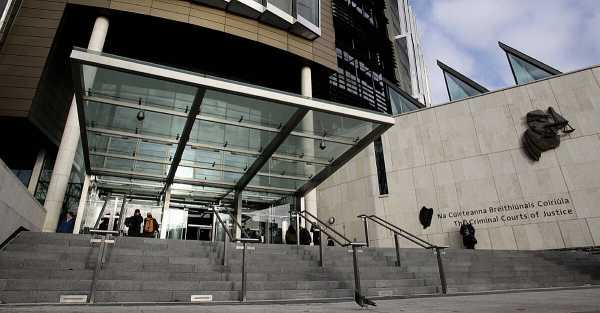
A financial adviser who lost approximately €2 million in private property investments through unauthorised stock market transactions has been sentenced to six years in prison.
William Keeley, 52, stood trial in Dublin earlier this year but changed his plea to guilty on day 21 of his trial, pleading guilty to three charges of fraudulently misappropriating funds from Barrington Capital Ltd accounts between 2007 and 2010. The court took into account the theft of $1.47 million and about €700,000.
Keeley, of Richmond Avenue, Dartry, Dublin 6, also pleaded guilty to knowingly carrying on the business of Barrington Capital Limited with intent to defraud creditors between July 2008 and February 2010.
Keeley also pleaded guilty to falsifying financial statements on March 12, 2010. He has no previous convictions.
The court found that Keeley had created a legal investment vehicle, Barrington Capital Ltd, to acquire commercial real estate in the US. After the 2008 global financial crisis, he failed to repay all of the funds intended for the property purchases, but instead used some of them – without the consent of investors – on the stock market, which ultimately failed.
After hearing the details of the case, Judge Elma Sheehan today/yesterday (FRIDAY) noted the high degree of culpability of Keeley and the significant harm caused to the victims.
Keeley was sentenced to six years in prison and was automatically disqualified from serving as a company director for five years.
The judge stressed that the number of investors involved, their financial losses and the impact on their emotional state and peace of mind were aggravating circumstances, along with the duration of the offence.
One investor read his victim impact statement to the court, describing how he invested €50,000 in what appeared to be a lucrative investment opportunity in 2007.
He described his attempts to contact Keeley and recover the funds after 2011 as “a nightmare chapter in my life.”
He noted that he had suffered not only a loss of 50,000 euros, but also lost opportunities over the past 17 years, since the money had not been returned to him.
He said he had “been waiting a long time for this day,” but now he had the answers and closure he needed.
The court found that none of the injured investors received a refund.
Detective Garda Ivor Scully told prosecutor Dominic McGinn that Keeley was working as a financial adviser at the time and was working with two American experts.
The initial plan was to raise $20 million, of which $5 million was raised in the first stage and sent to the United States to purchase commercial real estate.
Despite inquiries about various properties, the purchase never took place. After the 2008 global financial crisis, American experts recommended that the money be returned to individual investors, and the funds were returned to Ireland.
The court was told that, despite some expenses, there was still more than €5 million in the investment portfolio at that time.
However, Keeley did not return the funds to investors immediately, but instead began to redirect the money. He transferred various amounts to his personal account and then to a stock market trading account.
At the same time, Keeley informed investors of his intention to change the investment structure, but did not explain in detail, only noting that it would be linked to the American stock index.
Many investors said they were not interested and their money – more than 3 million euros – was returned.
Others said they were willing to consider the change but wanted more information. Some investors demanded their money back, while others did not respond within a certain time.
Keeley made it clear that no action would be taken without a formal vote on the new process, but had already transferred the funds to a trading account opened in his name.
Detective Scully told the court that the stock market investments were initially profitable but began to lose money at an alarming rate over a two-year period. Most of the $1.47 million was lost in the stock market, and this trading was not authorized by the affected investors.
Keeley kept investors informed periodically, assuring them that their funds were safe and that the investment scheme was still in development, and undertook
Sourse: breakingnews.ie